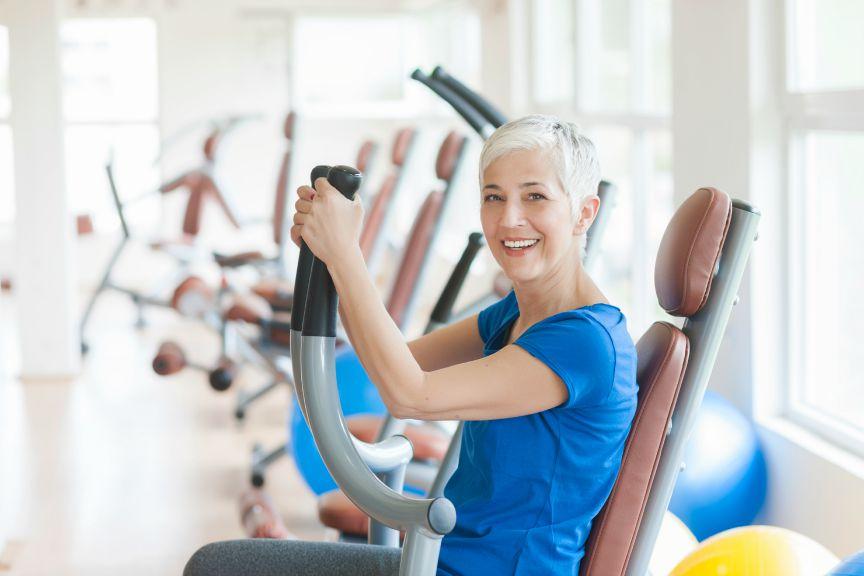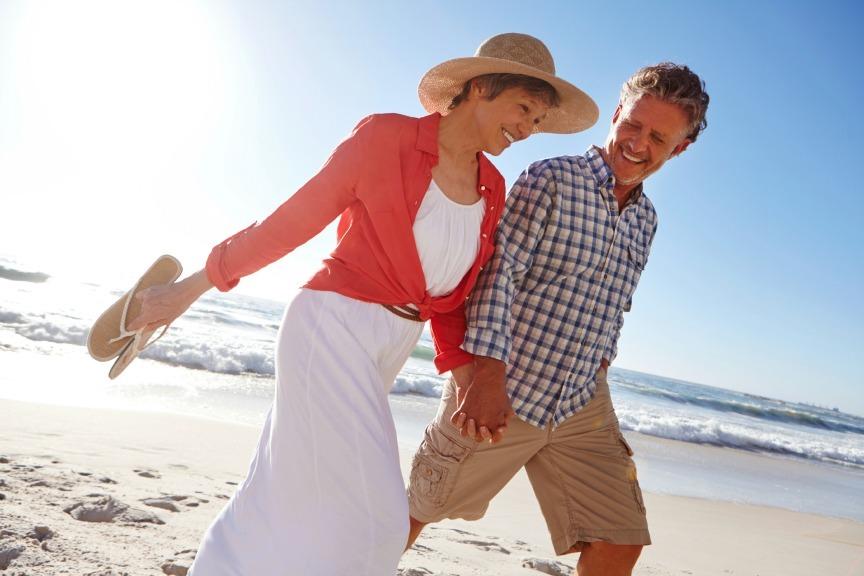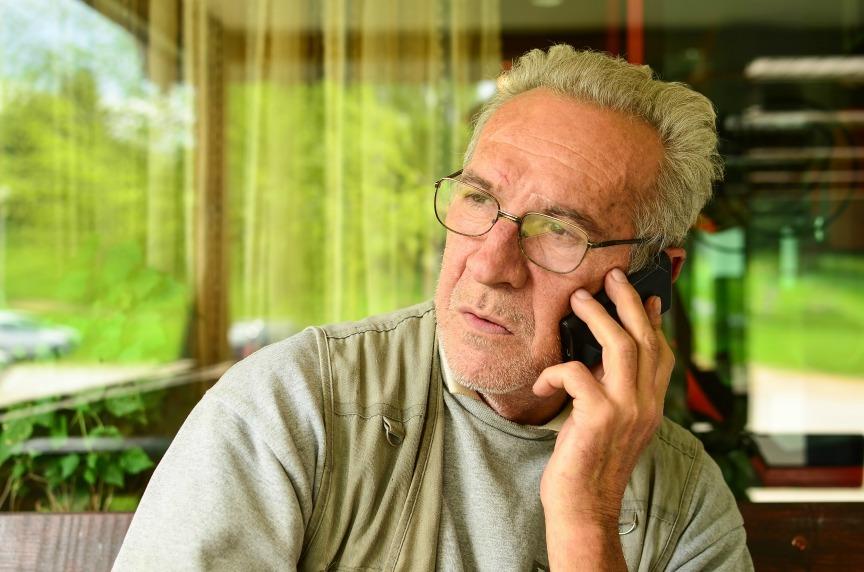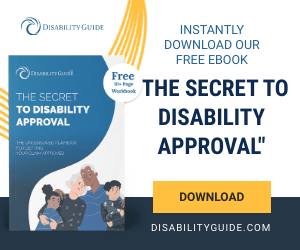Health Tips
Healthy Living Tip: 11 Reasons You Should Drink More Water

We all know we should be drinking plenty of water (especially when given the choice between tap water and sugary drinks), but many times that’s easier said than done. Our love of soft drinks may get the best of us or we might even get busy and forget to drink as much plain water as we should. We can relate.
For proper hydration, it’s important to replenish the fluid we lose each day in order to keep our bodies functioning. While we’ve all heard we should be drinking eight 8-ounce glasses of water per day, the amount that you actually need varies from person to person. Things like how active you are, what climate you live in and your overall health can all affect how much water you need to drink.
A good rule of thumb is to drink whenever you are thirsty. Pay attention to your urine as well. If it is too dark, that’s your body’s way of telling you it needs more fluids to prevent mild dehydration.
Still not convinced you should ditch the soda for extra water? Check out these other amazing health benefits…
1. It fuels your muscles — Hydrated muscles = strong muscles
2. It regulates your kidneys and bowels — Helping your body filter out toxins and prevents kidney stones, high blood pressure, urinary tract infection, and troublesome bowel movements. High water content also helps aid digestion without adding calories.
3. It keeps you energized — Tiredness or muscle fatigue is one of the first symptoms of dehydration, so next time you feel your eyes drooping, reach for a glass of water (not an energy drink).
4. It helps relieve joint pain — Sometimes your aching joints just need a little hydration.
5. It boosts your brain — Research shows students have better grades when they drink water during exams.
6. It keeps your skin clear — Dry skin and adult acne are the worst. Get rid of skin problems by staying hydrated.
7. It helps you fight colds — While you might not be able to beat a cold with water, it will help minimize your symptoms and shorten its duration.
8. It makes you more productive — Meaning you’ll get more done each day.
9. It improves your mood — Drink water. Nobody likes a cranky pants.
10. Prevent headaches — Nothing ruins a day faster than a throbbing head. Stay hydrated and you’ll find you get them less often.
11. Save money — Soda and energy drinks are expensive. Water is free. You do the math.
If you find bottled water to be boring, don’t be afraid to find ways to make it more enticing. Fruits and vegetables are high in water content so if you’d rather eat your water, go for it! Also, you could try adding fruits like lemons, strawberries and peaches to water to kick up the flavor a bit.
Experiment with different ways to encourage yourself to stay hydrated. Try carrying bottled water around to boost your bodily fluids, or tell yourself you need to finish a glass of water with each snack and meal
Drinking water just makes your life all-around better. Keep your body hydrated, and you’ll soon find yourself feeling healthier and happier!
Health Tips
Healthy Living Tip: Low-Impact Exercise for Beginners

If you’re living with a disabling condition, staying in shape might not be at the front of your mind. But the truth is that being fit, even when you’re living with a disability, can do a lot to improve your quality of life. Aside from increasing your endorphin levels—the natural feel-good chemical in your brain—regular exercise is also a great tool for fighting stress and depression and promoting full-body health.
Now I know what you’re thinking: running marathons, jumping in pools, and bench-pressing weights are not things I can or should be doing right now. The good news is that you don’t have to be scaling mountains to have your health in a good place. Low-impact exercise is a great way to stay healthy and strong even if you have a condition that limits your mobility. In fact here’s a great video of a low-impact cardio routine that will get you sweating:
Keep in mind that even this routine might be too strenuous for your condition. Just exercise at the pace that works for you and be patient with yourself if you need to take a rest. It’s also a good idea to consult your doctor when trying any new kinds of exercise to make sure it’s safe for your condition.
To learn even more about the importance of getting fit, check out our blog post on exercising with a disability.
Health Tips
Healthy Living Tip: 7 Ways to Beat Your Stress

In our fast-paced world, anxiety and stress have pretty much become a way of life. And I speak from personal experience when I say stress is the pits. As a perfectionist, an introvert, and an all-around worried person, I understand that sometimes your stress goes into overdrive. Feeling like you can’t do anything about it only makes the problem worse.
But you can do something about it! I’m not saying there’s a magical pill or a mystical yoga routine for beating stress. (Although if you do ever hear about one, please let me know.) What I’m saying is there are things you can do to make your internal life less hectic. Here are seven simple ways that I like to soothe my stress:
1. Make a list—One of my tried and true methods of stress reduction is list-making. Writing things down is a great way to gather your thoughts and come up with a plan, so write down everything you need to do or a list of ways to fix your problem. You’ll be able to see your thoughts on paper plus have the added benefit of not forgetting anything.
2. Go on a walk—Exercise is an awesome way to get your mind off things. So if you’re pushing to your breaking point, set aside twenty minutes to go on a quiet walk by yourself or with a friend. Spending time in nature has been scientifically proven to reduce stress in case you didn’t know.
3. Eat a snack—Dealing with stressful daily drama on an empty stomach isn’t a good plan for anyone, so do what you can to keep your blood sugar from dropping. Eat smaller meals more frequently to keep your energy up. Plan ahead for stressful weeks by packing yourself some nutritious snacks. Berries, chopped vegetables, and plain almonds are some of my personal favorites.
4. Get a massage—Confession: this is my favorite stress-reduction tip of all time. Massage therapy has a shocking number of emotional and physical benefits, and if you’re feeling stressed out, chances are you’re carrying that tension somewhere in your body. Take a load off and visit a massage therapist in your area. You can jump online to find one with good reviews or look on Groupon for an inexpensive option.
5. Get more sleep—Okay, maybe this something I’m not the best at, but getting enough sleep is essential to maintaining healthy stress levels. Shoot for more than seven hours of uninterrupted sleep every night and try to get to bed before midnight. If you’re so stressed out that you can’t sleep at all, try natural remedies like sleepy chamomile tea, essential oils, or a warm cup of milk before bed. If your sleepless nights persist, be sure to talk to your doctor.
6. Take a breather—I don’t know about you, but the things that stress me out the most are things that I can’t control. And when life feels especially crazy and unfixable, it might just be time for a break. Open up your laptop to watch some cat videos. Start a new creative project. Watch your favorite movie. Whatever it is you enjoy, carve out a little bit of time to do it. And if nothing helpful is coming to mind, take fifteen minutes to lie down in a dim room and breathe in and out deeply. Trust me, it makes a difference.
7. Talk to somebody—Stress isn’t something you have to take on alone. If you’re feeling consistently anxious, talk to a close friend about how you’re feeling. It may not sound like much, but verbal processing will do you a lot of good. And if your anxiety becomes unmanageable or you find yourself feeling stressed out a majority of the time, it might be time to talk to a professional. Ask your doctor for recommendations.
For more healthy living tips, check out our blog posts on yoga stretches that reduce lower back pain and all the benefits of vitamin D.
Health Tips
Healthy Living Tip: 7 Ways to Save Your Skin

Summer sunshine is a glorious thing, but too much of it can be . . . how should I put it? Not quite so glorious. And in some cases it’s downright painful. Luckily there are lots of common-sense methods for keeping sunburns at bay this time of year.
So to help you save your skin, here are seven quick tips for protecting yourself from getting toasted:
1. Cover up—This is hands-down the easiest way to shield yourself from the sun. Put on a hat and try to cover up bare skin with loose, light-colored clothing. Resist the urge to go shirtless!
2. Wear sunscreen—Your mother has been telling you this for years. so take a page out of her book and go for SPF 30 or higher. Also be sure to reapply your sunscreen at least every two hours and throw out any sunscreen that’s expired. Old sunscreen won’t protect you.
3. Wear sunglasses—Even your eyes need protection from the sun, so pick up a pair of sunglasses. And be sure to check the label to make sure they’re blocking 99 to 100 percent of UVA and UVB rays.
4. Listen to your doctor—If you’re on a medication that makes you sensitive to the sun, take care of yourself. Antibiotics, anti-inflammatories, antifungals, or blood pressure medications are all good reasons to avoid direct sunlight, and procedures like chemotherapy or laser hair removal can make you extra sensitive too. So follow your doctor’s instructions to the letter.
5. Don’t tan!—I cannot say it enough times: when the urge to seek out a tanning bed hits you, resist! Tanning beds and tanning lamps expose you to harmful UVA and UVB rays that can cause permanent skin damage, and a bronze skin tone just isn’t worth that. Trust me.
6. Seek out shade—Whenever possible, give your skin a break. Go sit under a leafy tree. Try to walk in the shade. And also keep a lookout for conditions that intensify the sun’s rays. Water, snow, white sandy beaches, and even cloud cover can reflect sunlight and cause serious sunburns.
7. Go inside—I know it’s the last thing you want to do on a beautiful day, but try to limit your sun exposure between 10:00 a.m. and 4:00 p.m. when UV rays are strongest. If you ever feel yourself starting to burn or getting dizzy, go inside an air-conditioned building immediately.
Looking for more ways to stay healthy this summer? Check out this cool blog post on all the reasons you should drink more water.
-

 About SSI & SSDI10 years ago
About SSI & SSDI10 years ago6 Different Types of Service Animals
-

 Getting Approved10 years ago
Getting Approved10 years agoWill Medical Marijuana Affect My Social Security Disability Case?
-

 About SSI & SSDI10 years ago
About SSI & SSDI10 years agoHow the Social Security Blue Book of Impairments Can Affect Your Disability Claim
-

 About SSI & SSDI9 years ago
About SSI & SSDI9 years agoSSDI or SSI: What Makes These Programs Different?
-

 Getting Approved10 years ago
Getting Approved10 years agoQuick Tip: List Your Attorney as a Contact for the SSA
-

 Getting Approved10 years ago
Getting Approved10 years ago9 Useful Secrets For Filling Out The Social Security Disability Application
-

 News9 years ago
News9 years agoWhy Would You Need to Contact the SSA?
-

 Getting Approved10 years ago
Getting Approved10 years agoCan Social Media Activity Affect My Disability Case?


